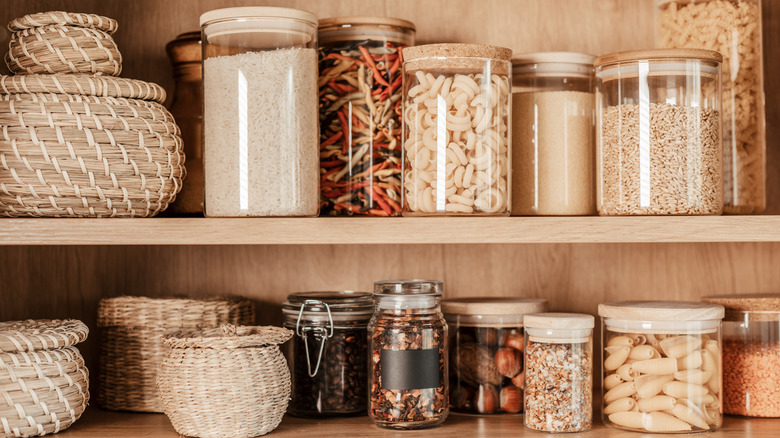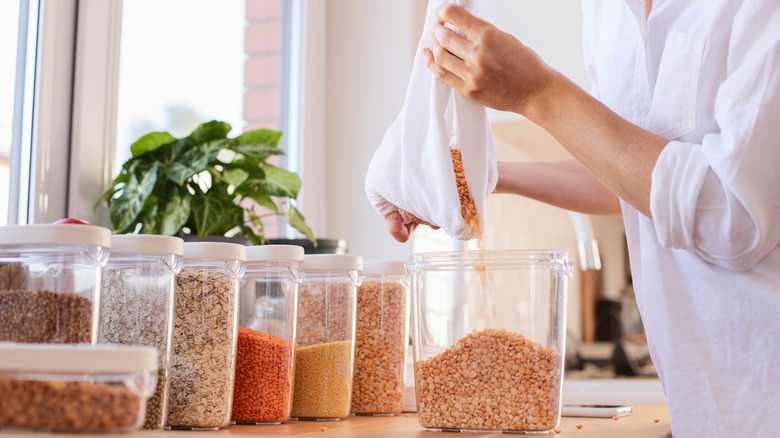The Dry Goods You Absolutely Need To Store In A Container
If your go-to storage methods for dry goods involves rolling your sugar bags closed or sealing your flour with chip bag clips, this is your sign that there is a better way. The days of wrestling with the original packaging in an effort to close it neatly are gone, and the time of containers is here. The benefits of storing dry goods in a container go beyond making it easier for you to put the goods away; following the advice of Maria Baer, founder of The Baer Minimalist®, will benefit the very goods you are storing as well.
Baer recommends that dry goods like flour, sugar, rice, oats, pasta, and beans be stored in airtight containers instead of their original packaging. According to Baer, with proper maintenance of the containers themselves, storing dry goods in this way protects their shelf life, reduces food waste, and preserves an ideal storage environment for the goods. If you are interested in the details, keep reading.
Why airtight containers work
While the original packaging of dry goods is sturdy enough to get the ingredients to your kitchen, it is a risky choice for further storage. "Original packaging, especially paper or thin plastic, isn't designed for long-term storage and often leaves food vulnerable to pests or moisture," Maria Baer explains. She adds that tears or breaks in original packaging can cause food to go bad; in contrast, storing dry goods in an airtight container extends their lifespan. If there is one thing to learn about the pantry staples you have been storing wrong this entire time, it is that an airtight container goes a long way in protecting your dry goods.
As with most kitchen appliances and dishes, airtight storage containers should be cleaned between uses. "In a perfect world, you should fully empty and wash containers every time you refill or whenever you switch between different types of food," says Baer. Baer notes that when containers are not emptied and washed, there is a chance that lingering oils and particles can cause whatever next fills the vessel to spoil. Washing the containers will also decrease the chances of mold and bacteria contaminating the contents, she adds. If this is just the start of your organizational journey and you want to learn more from Baer, check out these four essential types of bins for organizing your kitchen.

